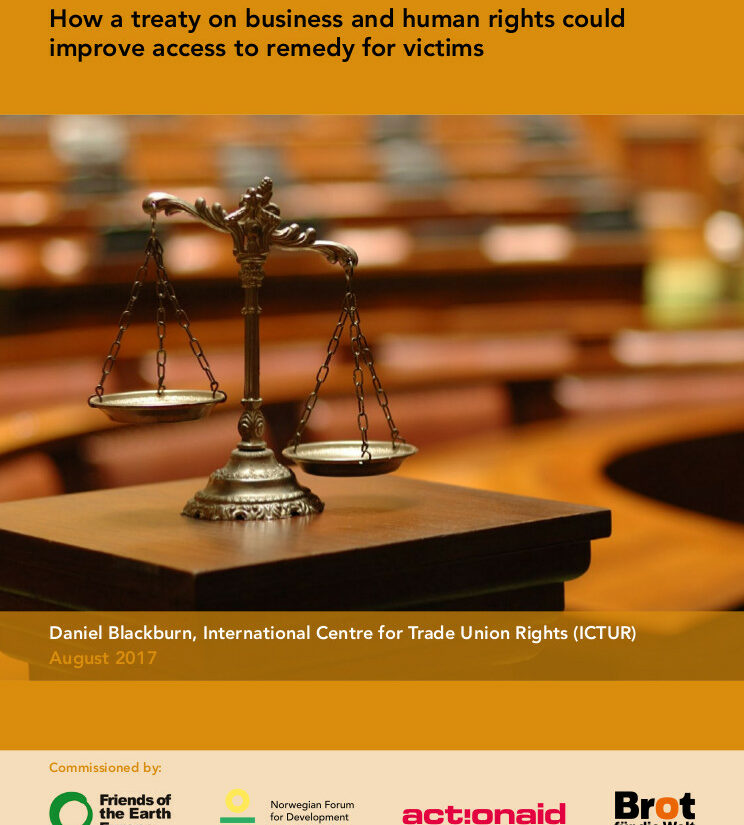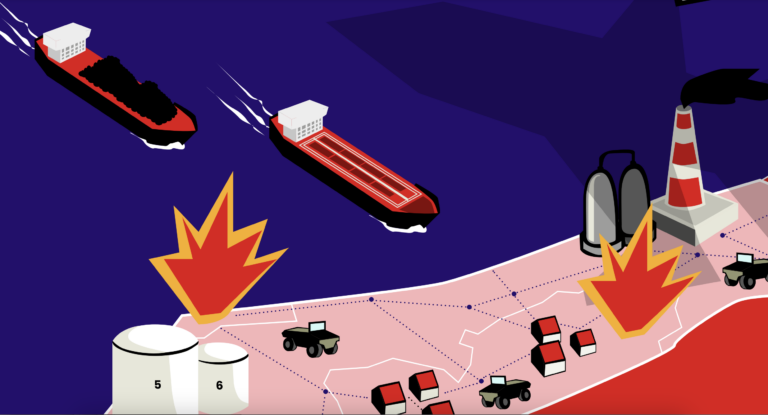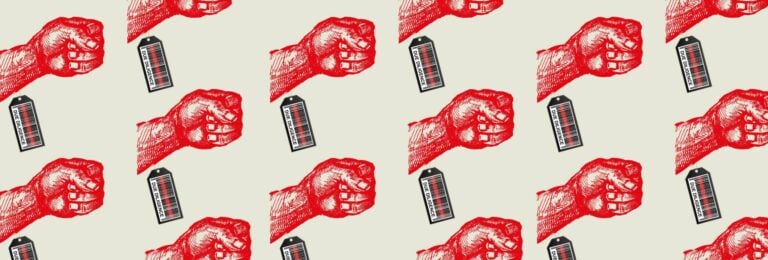
Removing Barriers to Justice
How a treaty on business and human rights could improve access to remedy for victims
This report provides concrete evidence of continuing obstacles to access to remedy for victims of business-related human rights abuses, based on five well-documented cases. It also sets out seven areas for practical reform, arguing that the UN negotiations for a binding treaty on business and human rights offers a clear opportunity to improve the situation for victims going forward.
In June 2014, a ground-breaking resolution was adopted by the Human Rights Council that established an Inter-Governmental Working Group to develop an ‘international legally binding instrument on transnational corporations and other business enterprises with respect to human rights’. Such a ‘binding instrument’ – or treaty – is potentially an important next step on the path towards remedy for victims of business-related human rights abuses.
Seeking to contribute to the mandate of the Inter-Governmental Working Group on business and human rights, this report provides concrete evidence of continuing obstacles to access to remedy – highlighting the persisting remedy gap that a treaty might help to close. It also sets out seven recommendations for practical reforms, arguing that the UN negotiations for a binding treaty offer a clear opportunity to improve access to remedy for victims in future.
The report focuses specific attention on policy and legal developments in the European Union (EU). It identifies whether – and in what way – a UN treaty on business and human rights could complement and improve policy development and action at the national level to address barriers to remedy, as well as setting the framework for harmonising key elements of law across EU member states as well as globally.
The report was written by Daniel Blackburn (International Centre for Trade Union Rights), and commissioned by eight civil society organisations: ActionAid Netherlands, Brot für die Welt, Centre for Research on Multinational Corporations (SOMO), CIDSE, Friends of the Earth Europe, International Trade Union Confederation (ITUC), International Transport Workers’ Federation (ITF) and the Norwegian ForUM for Development and Environment (ForUM).
Partners
-
ITF Workers Union
-
CIDSE – Coopération Internationale pour le Développement et la Solidarité
-
ICTUR – International Centre for Trade Union Rights
Publication
-
Download: Removing barriers -How a treaty on business and human rights could improve access to remedy for victims (pdf, 575.46 KB)
Accompanying documents
Related news
-
 The hidden human costs linked to global supply chains in ChinaPosted in category:News
The hidden human costs linked to global supply chains in ChinaPosted in category:News Joshua RosenzweigPublished on:
Joshua RosenzweigPublished on: -
Powering injustice Published on:
 Lydia de LeeuwPosted in category:Publication
Lydia de LeeuwPosted in category:Publication Lydia de Leeuw
Lydia de Leeuw
-
 Major brands sourcing from China lack public policies on responsible exitPosted in category:News
Major brands sourcing from China lack public policies on responsible exitPosted in category:News Joshua RosenzweigPublished on:
Joshua RosenzweigPublished on:

